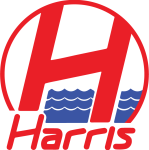The residents of New York City have come accustomed to roadway potholes, cracks and bumps leading to an uncomfortable ride and flat tires in many cases. The NYC Department of Transportation is now requiring a specialized testing of soil before a contractor paves the roadway where they have recently excavated.
If a water main and sewer contractor opens a roadway that has been re-surfaced within the previous five years, the roadway is categorized as a “protected street”. All protected roadways fall within the NYC DOT five year guarantee period and require a soil compaction testing (Proctor Test) while the roadway is being back-filled with soil. The city’s goal in requiring the compaction test is to ensure the quality of dirt, and ultimately the integrity of the newly paved roadway.
If a water main and sewer contractor opens a roadway that has been re-surfaced within the previous five years, the roadway is categorized as a “protected street”. All protected roadways fall within the NYC DOT five year guarantee period and require a soil compaction testing (Proctor Test) while the roadway is being back-filled with soil. The city’s goal in requiring the compaction test is to ensure the quality of dirt and ultimately the integrity of the newly paved roadway.
What is the Sand Cone Test?
A small 6×5 hole is dug in the soil being tested when the soil is weighed, dried and weighed again once again to determine the moisture levels as a percentage. The holes volume is determined by filling it with dry sand from the jar and cone device. The dry weight of the soil is removed and divided by the volume of soil needed to fill the hole. These figures allow for the density of compacted soil in lbs. per a cubic foot. The density is now compared to the density that was originally measured, giving the density of soil that was compacted.
Additional Cost working on a protected road
The additional cost to install a water main or sewer line on a protected roadway may fall within $100-$1000 pending the size of the hole being excavated. The NYC DOT also requires special permits which cost approximately $200 more than when opening a roadway older than five years. You can check to see if your home is on a protected roadway here.
Note- the list is not always 100% accurate due to NYC roadways being paved on a daily basis. Your local water main and sewer contractor can contact the DOT for real time updates.






















